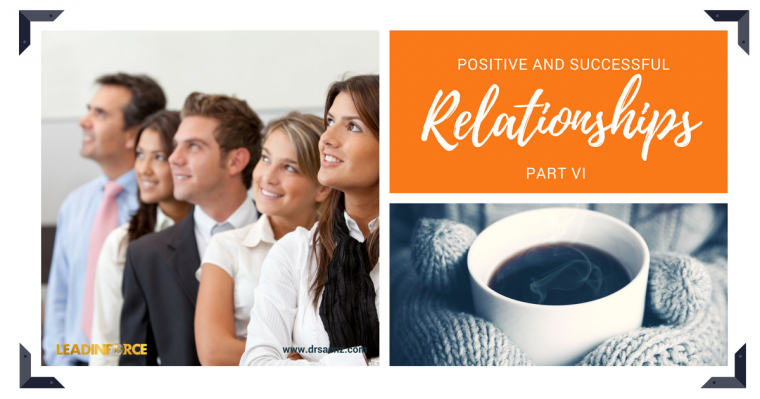In this series of six (6) key elements to have the right attitude in order to build successful relationships, we examine the importance of having a positive attitude to accomplish it and to better know you. We also look into how we see others, how frustration can be part of successful relationships. In the previous blog, we examined the different types of relationships and which one should be our first choice.

Now, the last element, but not the least that we are going to talk about is how to handle hurt that can occur when relating to others.
Whether it is a personal or professional relationship and whether you are well prepared or not in how to handle these situations, as we all know, it is difficult to avoid getting hurt when interacting with others.
However, what we can do is handling them in a positive way and turning them into tools towards successful relationships.
Have you been hurt in any type of relationship lately?
In today’s society and at the speed that we move, one of the skills we need to be successful is to have flexibility, adaptation, and resistance to the environment. The challenge with these great skills is that a large number of individuals walk around without healing their wounds and live constantly feeding them the wrong way.
What can you do to prevent these injuries from affecting your ability to relate positively and successfully with others?
First, we need to understand that we are surrounded by people who have most likely been hurt and they are difficult to deal with because of this.
Hurt people are vulnerable and probably their behavior will not be conscious until they do not overcome their pain. Those who have been hurt, often times hurt others, can get easily hurt by others and are probably hurting themselves.
In my experience as a mentor and coach, I have noticed that wounded people focus on the negative in every experience and regularly are stuck with “something” or “someone” who hurt them at one point. This approach leads them to have higher levels of stress. In addition, they are less willing to accept their mistakes, to change, to discuss problems, to learn from others or to take action to solve problems.
Second, we need to contemplate the possibility that we are that injured person. If we realize that people hurt us easily, that we frequently hurt others, that we feel vulnerable, and avoid change, we are most likely that injured person. We need to seek professional help and work on whatever situation or relationship that has caused this wound. We may have to face unpleasant things but on the other side of the tunnel, the light will definitely be brighter.
Third, whether we are dealing with a difficult person or we are that difficult person, we have to understand that there is no quick relief medicine for emotional wounds; they do not heal from one day to the next one. The solution requires a healing process with professional support.
If we are dealing with difficult relationships and people, what I suggest is that we:
- Do not focus on the person or their hurtful actions. We should try to look past the person to find a cause that will allow us to understand the situation and to approach it with greater compassion.
- Do not take it personally. Wounded people find offense where there is none. We need to make sure of our good deeds and not to focus on their attacks.
- Do not respond at the same level. Getting angry with someone makes the wound bigger. The best thing is to forget the offense and move on.
- Find help or help them find professional help. A kind and timely conversation with someone who is hurt can be very helpful and can open the door to the recovery process.
- Focus our energy towards the vision of the team. It is often the common vision of the team that helps us cope with difficult people.
Positive and successful relationships do not happen automatically; they need our intentionality and daily effort. Yet, they are what ensures successful teams and let’s keep in mind that it is with a team that something significant is really achieved.
If your desire is to increase your influence in every situation and connect with other successfully. You can start working with us today! Let’s have a conversation on how LEADINFORCE will benefit you, your team and your organization.
Question: How can you improve relationships with those difficult people around you?
